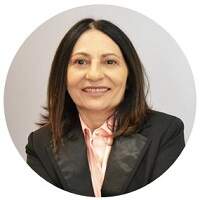Online time and attendance control: mobility for employees and easiness for the management
22/03/2021
Starting a business: strategic decisions impact the business since the foundation phase
29/03/2021EXPERT OPINION
STF decision on the ISS taxation instead of ICMS for software brings new perspectives for the technology sector
The measure represents a tax reduction and simplification for licensing or rights to use software
By Rita Araújo
This is an important step towards the legal security of business in the technology market. The Federal Supreme Court (Supremo Tribunal Federal - “STF”) established that the Tax on Services (Imposto sobre Serviços- “ISS”), a local tax, is on software. The understanding applies both to the “shelf” product, sold at retail, and to the one supplied to order, which meets the needs of a specific client.
Until then, the interpretation was that the Tax on Circulation of Goods and Services (Imposto sobre Circulação de Mercadorias e Serviços - “ICMS”), at the state level, should apply to “shelf” software.
The effects of the measure are the reduction and simplification of the tax burden for the technological sector, which gains in dynamism, competitiveness and expands its potential to attract national and foreign investments. Consequently, more innovative products and services will be developed in Brazil, influencing the progress of several economic segments.
Grounds for the reduction and simplification of taxation
The ISS rate ranges from 2% to 5%, depending on the municipality. In the city of São Paulo, for example, which concentrates a great number of IT companies, the rate for this type of service is 2.9%.
From the accessory obligations standpoint to be submitted to the ISS tax administration, there is the issuance of the Service Invoice (NF-e) and the statement of the issued NF-e per month, therefore, simple information and with programs provided by the municipality itself.
The operations previously subject to ICMS were taxed when the products were destined to the final consumer with a burden of at least 5%, without the right to discount credit. In other cases, the rate could be between 17% and 20% or 4%, 7% or 12% in operations for other states, depending on the state, but with the right to discount credits.
From the above, simply considering the main obligation (application of ICMS) it is quite assertive to talk about the enormous complexity. With regard to the accessory tax obligations to be provided to the respective state, in addition to the invoice, which contains a lot of information, there is the ICMS Digital Tax Record, which contains a lot of information. The taxpayer should also have the software able to generate such obligations.
The STF decision
Companies will contribute to municipalities from the ISS payment, while states are no longer permitted to impose ICMS taxes. |
STF judged the subject on February 18, by means of two direct actions of unconstitutionality (ações diretas de inconstitucionalidade - “ADI”). One of them, ADI 1945, was proposed in 1999, when the software had the electronic transfer done by floppy disk. Currently, commercialization occurs by means of download or streaming. ADI 5659 is newer and covers the current means for the commercialization of software.
Decision impacts
The positive impacts are direct for technology companies established in Brazil, game companies and streaming services.

The measure also puts an end to the fiscal war between states and municipalities to raise revenue. Another expected development is that the cost reduction for companies can be reflected in the drop in prices of technology services for the final consumer.
Practical Effects
The action was conducted by the STF in order to avoid a large volume of future judicial discussions. It also decided on the effects of the decision, attributing effectiveness as of the publication of the minutes of decision in relation to:
- prevent the repetition of undue ICMS tax on software transactions on behalf of those who paid this tax, until the day before the publication date of the decision minutes, prohibiting, in this case, that the municipalities taxing the ISS in relation to the same taxable events;
- to prevent states from taxing the ICMS in relation to the taxable events that occurred until the day before the date of publication of the minutes of the judgment on the appeal.
The following will not be reached:
- the hypotheses of proven double taxation, in which case the taxpayer will be entitled to a repetition of the undue ICMS tax.
It is important to highlight that the ISS is taxed in case of non-payment of ICMS or ISS in relation to the taxable events occurred up to the day before the date of publication of the minutes of the decision on the appeal.
The following table lists the eight modulations established by the STF to guide taxpayers. See the hypotheses:
Situation |
How it is |
|
|
1 |
Taxpayer paid ICMS, only |
No right to a refund. Municipalities cannot impose ISS, which would characterize double taxation. |
|
2 |
Taxpayer paid ISS, only |
The payment of this tax will be validated. In turn, states cannot impose ICMS. |
|
3 |
Taxpayer who did not pay ICMS or ISS until Mar-2-2021, the day before the publication of the judgment minutes |
Only ISS should be payable. |
|
4 |
Taxpayer who paid ISS and ICMS, but did not file an undue repetition lawsuit |
Since it constitutes double taxation, there is a possibility of refunding ICMS even if no lawsuit is in progress. |
|
5 |
Pending lawsuits filed by taxpayers against states, including reimbursement claims, in which the ICMS payment is questioned |
The lawsuits must be judged based on the understanding that ISS, and not ICMS, is taxed on software operations. In this case, there is a possibility of refunding or release of amounts deposited for ICMS payment. |
|
6 |
Lawsuits, including tax foreclosures, pending judgment filed by states aiming the ICMS payment for taxable events occurred up to Mar-02-2021, the day before the publication date of the minutes of decision |
The lawsuits must be judged based on the understanding that ISS, and not ICMS, is taxed on software operations. Thus, the lawsuits must be extinguished, with gains for the companies. |
|
7 |
Lawsuits, including tax foreclosures, pending judgment filed by states aiming the ISS payment for taxable events occurred up to Mar-02-2021, the day before the publication date of the minutes of decision |
The lawsuits must be judged based on the understanding that ISS is taxed, unless the taxpayer has already paid ICMS. |
|
8 |
Pending lawsuits filed by taxpayers against municipalities discussing the taxation of ISS on software operations until Mar-02-2021, the day before the publication date of the minutes of decision |
The lawsuits must be judged based on the understanding of the ISS taxation, with a favorable decision for the municipalities. Taxpayers they will automatically lose the cause. |
Specialists in the technology tax scenario
With a global vision and expertise in the technological sector, Domingues e Pinho Contadores is ready to advise businesses in this segment to operate accordingly and find tax opportunities.
DPC's team of specialists considers the specific and strategic demands of each client, offering the necessary operational and consultancy support to enhance business development in the complex Brazilian scenario.

Author: Rita Araújo, partner and director at Domingues e Pinho Contadores.
How DPC may help your company?
Domingues e Pinho Contadores has specialized team ready to assist your company.
Contact us by the e-mail dpc@dpc.com.br
See more
Sign up for our Newsletter:
Are you interested?
Please contact us, so we can understand your demand and offer the best solution for you and your company.
Rio de Janeiro
Av. Rio Branco 311, 4º e 10º andar - Centro
CEP 20040-903 | Tel: +55 (21) 3231-3700
São Paulo
Rua do Paraíso 45, 4º andar - Paraíso
CEP 04103-000 | Tel: +55 (11) 3330-3330
Macaé
Rua Teixeira de Gouveia 989, sala 302 - Centro
CEP 27910-110 | Tel: +55 (22) 2773-3318






